The small business lending landscape has shifted dramatically over the past decade. Entrepreneurs are moving away from banks, frustrated by slow approval processes, rigid loan options, and heavy paperwork. Instead, brokers are stepping in with faster, more flexible funding solutions tailored to individual needs. Here's why brokers are becoming the preferred choice:
- Speed: Brokers connect businesses to lenders quickly, avoiding the delays typical of banks.
- Options: They offer access to a wide network of lenders, not just a single institution's products.
- Flexibility: Brokers work with varying credit profiles and collateral types, creating customized terms.
- Expertise: They specialize in niche markets and provide a consultative approach to financing.
With the rise of AI-powered tools and digital platforms, brokers are streamlining the lending process even further. These technologies help match borrowers with lenders, simplify documentation, and accelerate deal closures. As banks tighten requirements, brokers are filling the gap by offering solutions that align with the fast-paced needs of modern entrepreneurs. If you're looking for funding, brokers might be the smarter, faster path forward.
Brokers vs. Banks: Key Differences Explained
What Are Brokers and Banks in Small Business Lending
Banks use their own funds to lend directly to businesses. When you apply for a loan at a bank, you’re dealing with an institution that operates under strict internal rules and regulatory standards. Banks typically offer standardized loan products with fixed terms, interest rates, and qualification requirements. The entire process - application, review, and approval - follows a structured, predictable framework.
Brokers, on the other hand, act as middlemen, connecting business owners with a variety of lenders. Instead of lending money themselves, brokers work with a network of funding sources, including alternative lenders, private investors, and specialized financing companies. They earn a commission when a loan is successfully secured, which incentivizes them to find financing solutions that align with their clients' specific needs.
The key difference comes down to their approach: banks focus on whether you meet their criteria, while brokers focus on finding the lender that best suits your needs. This distinction results in a more customized borrowing experience when working with brokers.
Side-by-Side Comparison: Brokers vs. Banks
Here’s a closer look at how brokers and banks differ across several important factors:
| Factor | Brokers | Banks |
|---|---|---|
| Approval Speed | Typically faster with quicker initial reviews | Often slower with longer approval times |
| Funding Options | Access to a wide network of lenders | Limited to the bank’s own loan products |
| Credit Requirements | More flexible and accommodating | Stricter credit thresholds |
| Documentation | Streamlined, often digital processes | Extensive paperwork and in-person steps |
| Deal Structure | Customizable terms and repayment options | Standardized loan packages |
| Industry Expertise | Specialized knowledge in niche markets | Broader, general lending approach |
| Collateral | May accept alternative forms of collateral | Typically requires traditional collateral |
| Relationship | Personal, consultative approach | Formal, institutional relationship |
While banks rely on lengthy documentation and multiple approval layers, brokers simplify the process, offering quicker evaluations - especially helpful when time-sensitive funding is crucial.
Another standout benefit of brokers is their flexibility. Without being tied to rigid internal policies, brokers can craft creative financing solutions, such as revenue-based loans or asset-backed options, that align with a business’s unique goals and circumstances.
Finally, brokers often provide a more hands-on, personalized experience. Their success depends on building strong client relationships and understanding the specific needs of each business. This allows them to explore funding opportunities that traditional bank systems might overlook.
These distinctions highlight why brokers are often the go-to choice for small business acquisitions, which is further explored in the next section.
Banks vs. Brokers: Who to Trust for Your Business Loan!
Why Brokers Excel at Small Business Acquisitions
Acquiring a small business often presents challenges that traditional banks struggle to handle. Evaluating a business's value, crafting creative financing solutions, and acting quickly on time-sensitive deals require a level of flexibility and expertise that brokers are well-equipped to offer. Their ability to adapt and specialize allows them to provide quicker, more tailored financing solutions for buyers.
Faster Deal Closures and Streamlined Processes
In a competitive acquisition market, delays can mean missed opportunities. Brokers help buyers avoid these setbacks by connecting them with multiple qualified lenders at once, speeding up the process significantly.
They also simplify the paperwork. By preparing standardized loan packages that meet the requirements of various lenders, brokers reduce the administrative burden for buyers. Acting as intermediaries, they manage communication between all parties involved, ensuring the transaction stays on track without unnecessary holdups.
Flexible Financing Tailored to Each Deal
Every acquisition comes with its own financial complexities. Brokers understand that a one-size-fits-all loan approach rarely works, so they draw from their extensive networks to offer creative and flexible funding solutions.
For example, brokers can structure deals that incorporate multiple funding sources, such as seller financing for part of the purchase price. They also connect buyers with lenders who are experienced in combining different financing methods to meet larger capital needs. This personalized approach ensures buyers have access to a wide range of options, making it easier to secure the funds necessary for significant investments.
Access to Specialized Lenders and Unique Markets
Brokers also excel at connecting buyers to niche financing sources. They work with lenders who specialize in specific industries, such as restaurants, retail, professional services, and manufacturing. These industry-specific lenders understand the unique financial dynamics of their sectors, offering buyers more tailored terms and faster approvals.
Beyond traditional banks, brokers tap into alternative financing options like private debt funds, family offices, and specialty finance companies. They also collaborate with institutions that specialize in government-backed programs, helping buyers navigate and benefit from these opportunities. This broad network provides buyers with access to a more diverse range of lending options than they would typically find through conventional channels.
sbb-itb-a3ef7c1
Broker Tools and Platforms Changing SMB Lending
Technology is reshaping small business lending, making it easier for brokers to connect buyers with lenders, structure deals, and speed up transactions. By combining the flexibility brokers already bring to the table with digital tools, these platforms are setting new standards for efficiency in sourcing and closing deals.
AI-Powered Platforms and Loan Marketplaces
Today’s broker platforms use artificial intelligence to match borrowers with lenders based on their financial profiles. Brokers can input key details about a business and its finances into these systems to quickly uncover financing options that fit. This AI-driven process not only saves time but also ensures borrowers have access to competitive options through online marketplaces.
Key Features of Clearly Acquired's Platform
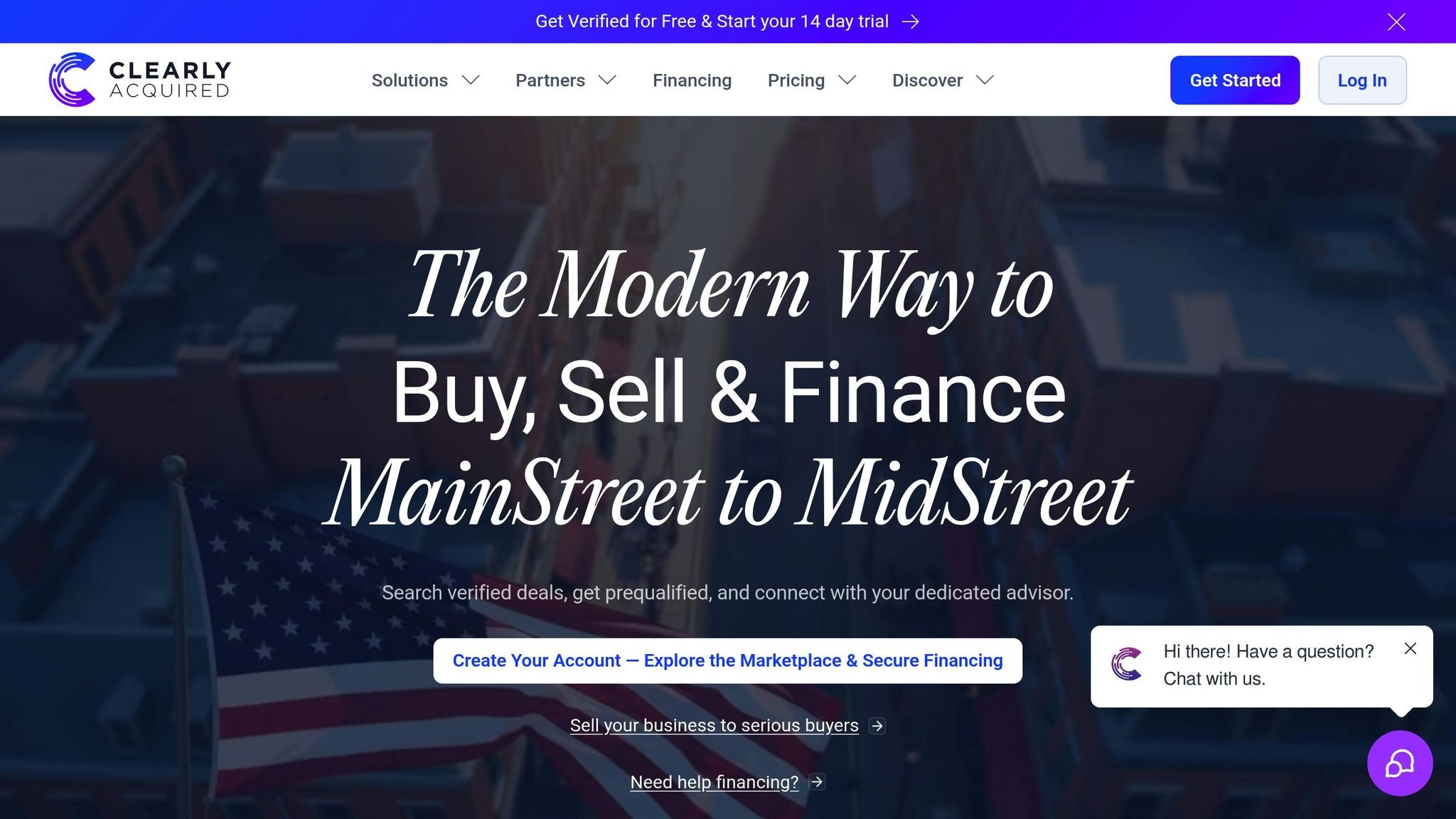
Clearly Acquired offers a comprehensive platform that covers every step of the acquisition process, from finding deals to finalizing them. It combines multiple tools to give buyers access to a wide variety of opportunities across public and private marketplaces.
- Off-market search tools: Using Google Maps API, these tools help pinpoint targets by location or industry, making it easier to find the right match.
- Investor matching: Buyers seeking additional capital can connect with co-investors or partners through the platform.
- Loan marketplace: By integrating with Plaid, the platform matches buyers with lenders, verifies financial details, and pre-qualifies buyers - speeding up the loan process.
- Secure data rooms: Permission-controlled access ensures safe document sharing throughout the transaction.
- AI-driven business valuation: This tool provides instant valuations based on market trends and comparable sales, helping buyers and lenders evaluate deals early on.
Broker Tools vs. Old-School Methods: A Comparison
| Aspect | Modern Broker Platforms | Traditional Methods |
|---|---|---|
| Lender Matching | Automated pairing of borrowers with lenders | Manual outreach to multiple lenders |
| Document Sharing | Secure digital data rooms | Email attachments and physical document handoffs |
| Deal Sourcing | Access to public, private, and off-market opportunities | Limited to public listings and broker networks |
| Financial Verification | Automated tools like Plaid for quick checks | Manual review of financial documents |
| Communication | Centralized messaging and tracking within the platform | Disconnected communication via phone and email |
| Valuation Process | Instant AI-based valuations with market data | Labor-intensive manual analysis of comparable sales |
Modern platforms go beyond just simplifying the process - they tailor financing solutions to meet specific needs, whether it’s seller financing or asset-based options. By blending advanced technology with expert guidance, these tools create a smoother, more effective lending experience for everyone involved.
How to Use Brokers for Small Business Lending
Using brokers for small business acquisitions can be a smart move, but it requires a thoughtful approach to make the most of their expertise and connections. The trick lies in finding the right broker, tapping into their network effectively, and staying on top of compliance and regulatory details throughout the process.
How to Find and Vet the Right Broker
Start with their credentials. Make sure the broker holds valid state licenses and registrations. You can verify these through state databases. It’s also a good idea to see if they belong to professional organizations like the International Business Brokers Association (IBBA) or have certifications from other respected industry groups.
Look into their track record. Ask them to share examples of deals they’ve recently closed. Find out about the structures, timelines, and any challenges they faced. Don’t hesitate to request references from buyers and lenders who’ve worked with them.
Check their lender connections. The best brokers have strong relationships with a variety of lenders, including SBA-preferred lenders, alternative financing options, equipment finance companies, and private credit funds. Ask which lenders they typically work with and how they match borrowers to the right funding sources.
Evaluate their tech tools. Brokers who use modern platforms for document collection, lender communication, and deal tracking can make the process faster and more efficient. This can be a big advantage when time is of the essence.
Understand their fees. Reputable brokers usually charge fees based on the success of the deal, meaning you pay only when the deal closes. Be cautious if a broker asks for large upfront payments or won’t clearly explain their fee structure.
Expanding Your Funding Options with Broker Support
Get your financial documents in order. Gather recent tax returns, financial statements, bank records, and a detailed business plan. A complete financial package makes it easier for brokers to present your case to lenders.
Use their market knowledge. Experienced brokers stay informed about market trends and can recommend the best time to apply for loans. They also know which lenders are actively funding certain industries and can tailor your application to fit what those lenders are looking for.
Pursue multiple financing options at once. Rather than focusing on one type of loan, brokers can present your case to several lenders simultaneously. This approach can increase your chances of getting better terms or a faster closing since you’re not relying on just one lender’s approval.
Let them negotiate for you. Brokers often have established relationships with lenders and can use these connections to secure better terms, such as lower interest rates, longer repayment periods, or reduced personal guarantees.
Tap into specialized lenders. Some lenders focus on specific industries, like healthcare or manufacturing, and prefer to work through brokers. These lenders often have more flexible underwriting criteria and can offer creative financing solutions.
Once you’ve secured funding options, staying organized and compliant is essential to keep everything on track.
Managing Compliance and Documentation
Stay involved and communicate clearly. Set clear expectations for who will handle document collection, how updates will be shared, and timelines for each phase. While brokers manage most of the lender communication, you should stay involved in key meetings and decisions. Many brokers use project management tools to keep everything organized.
Review disclosure requirements. Brokers are required to provide written disclosures about their fees, relationships with lenders, and any potential conflicts of interest. Make sure you understand these disclosures before moving forward.
Keep digital files organized. Use secure platforms for sharing documents. These tools often include audit trails and version control, which can be crucial if lenders request updated information quickly.
Double-check your financials. While brokers will review your documents, it’s ultimately your responsibility to ensure everything is accurate and consistent. Errors or inconsistencies can slow down or even derail the loan process.
Prepare for post-closing requirements. Many loans come with ongoing obligations, like regular financial reporting or meeting certain covenants. Discuss these with your broker ahead of time so you can set up systems to stay compliant throughout the loan term.
Conclusion: Brokers Lead the Future of SMB Lending
The move from traditional banks to brokers marks a major change in how small businesses secure financing for acquisitions. Brokers consistently provide what banks often struggle to deliver: speed, adaptability, and access to funding sources tailored to the unique needs of each deal.
One standout feature of brokers is their extensive lender networks. While banks tighten their lending requirements and draw out approval timelines, brokers are expanding their reach. For instance, some broker platforms now partner with over 75 lenders, increasing the chances of securing a loan and offering businesses multiple options to compare. This broad network gives brokers a clear edge over individual banks.
Technology is playing a crucial role in this shift. AI-powered platforms and digital loan marketplaces allow brokers to quickly evaluate a business's financial position, connect them with the right lenders, and manage deals seamlessly. This leads to faster loan approvals, better documentation, and clearer communication throughout the process.
Take the SBA loan process as an example - it typically spans about 9 weeks from the first consultation to closing. Brokers streamline this journey by handling the paperwork, managing lender relationships, and navigating the regulatory maze, making it easier for small business owners to seize acquisition opportunities.
Platforms like Clearly Acquired are pushing the boundaries even further. By combining AI-driven valuation tools, comprehensive loan marketplaces, and deal management features, they cover every step of the acquisition process - from finding opportunities to closing deals.
Brokers are addressing the core challenge in small business lending: the gap between what businesses need and what traditional lenders provide. With faster approvals, creative financing options, and access to specialized lenders, brokers are becoming the go-to solution for entrepreneurs. Local banks no longer set the standard. This shift underscores how brokers are not just meeting the demands of today’s small business financing - they’re exceeding them.
FAQs
Why do brokers provide faster loan approvals than traditional banks?
Brokers play a key role in helping small businesses find the right lenders, making the loan approval process much smoother. Unlike traditional banks, brokers tap into an extensive network of lenders and financing options, which allows them to quickly connect businesses with funding solutions that align with their specific needs.
What sets brokers apart is their flexibility and streamlined approach. Their processes typically involve fewer bureaucratic steps compared to banks, enabling them to gather essential information, assess various options, and secure approvals much faster than traditional lenders.
What kinds of lenders are typically part of a broker's network, and how are they different from traditional banks?
A broker's network typically spans a wide range of lenders, including traditional banks, online platforms, credit unions, and alternative financing providers. This broad network gives small business owners access to more loan options than they'd find by working with a single bank.
Traditional banks often have stricter lending requirements and fewer loan products. Brokers, on the other hand, can connect you with lenders offering more flexible or specialized financing options. This means you could benefit from quicker approvals, tailored funding strategies, and the possibility of securing financing even if you don't meet the stringent criteria of a traditional bank.
What should small business owners look for when choosing a broker for financing?
When selecting a broker, small business owners should prioritize those with solid experience in business acquisition financing. It's important to find brokers who are well-versed in SBA loan programs, have connections with a wide range of lenders, and come with strong endorsements from past clients.
A dependable broker will provide tailored advice, guiding you through the often-complicated financing process and helping you secure terms that align with your goals. Be sure to review their history and confirm their expertise in small business lending before making your choice.











%20%20Process%2C%20Valuation%20%26%20Legal%20Checklist.png)











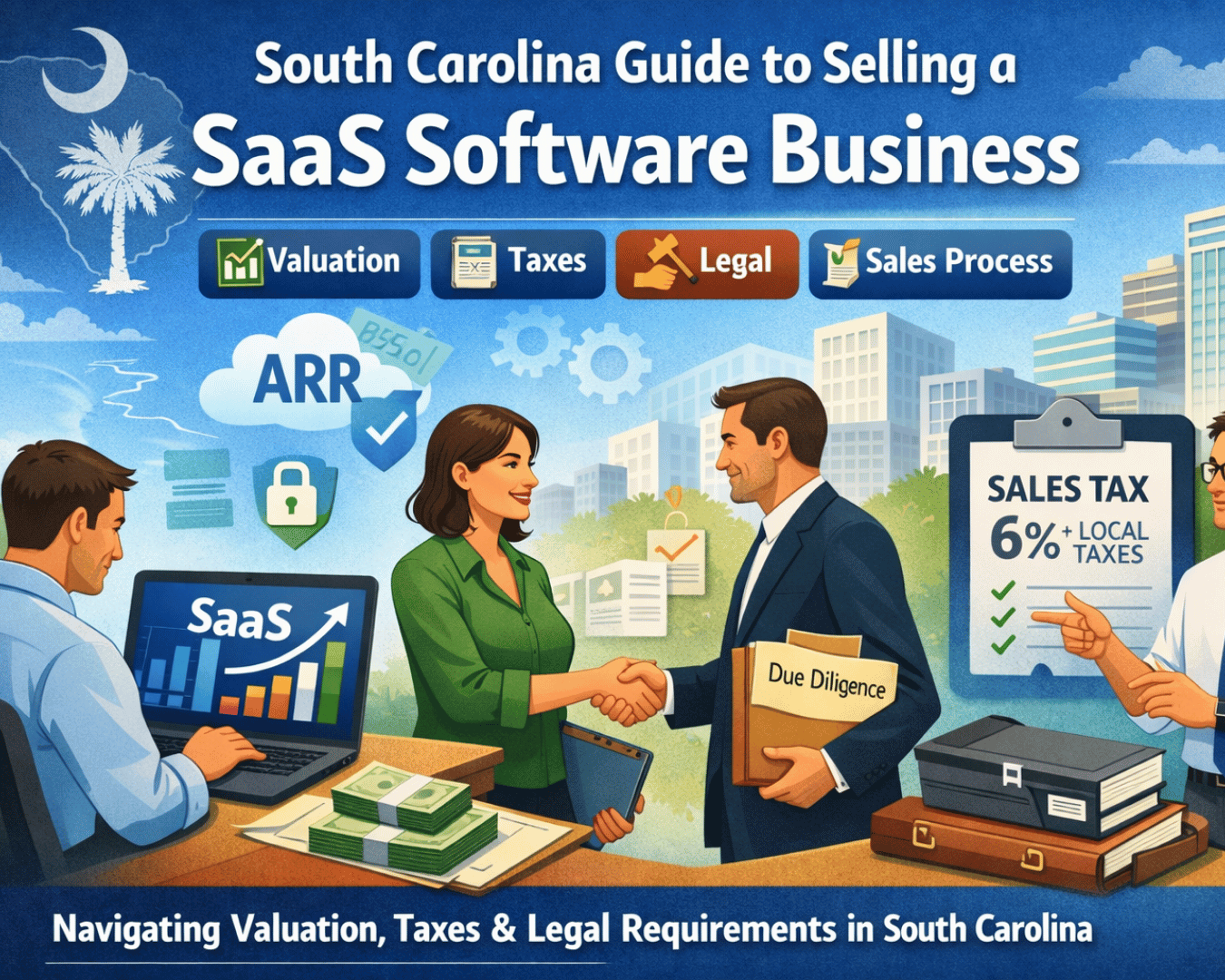







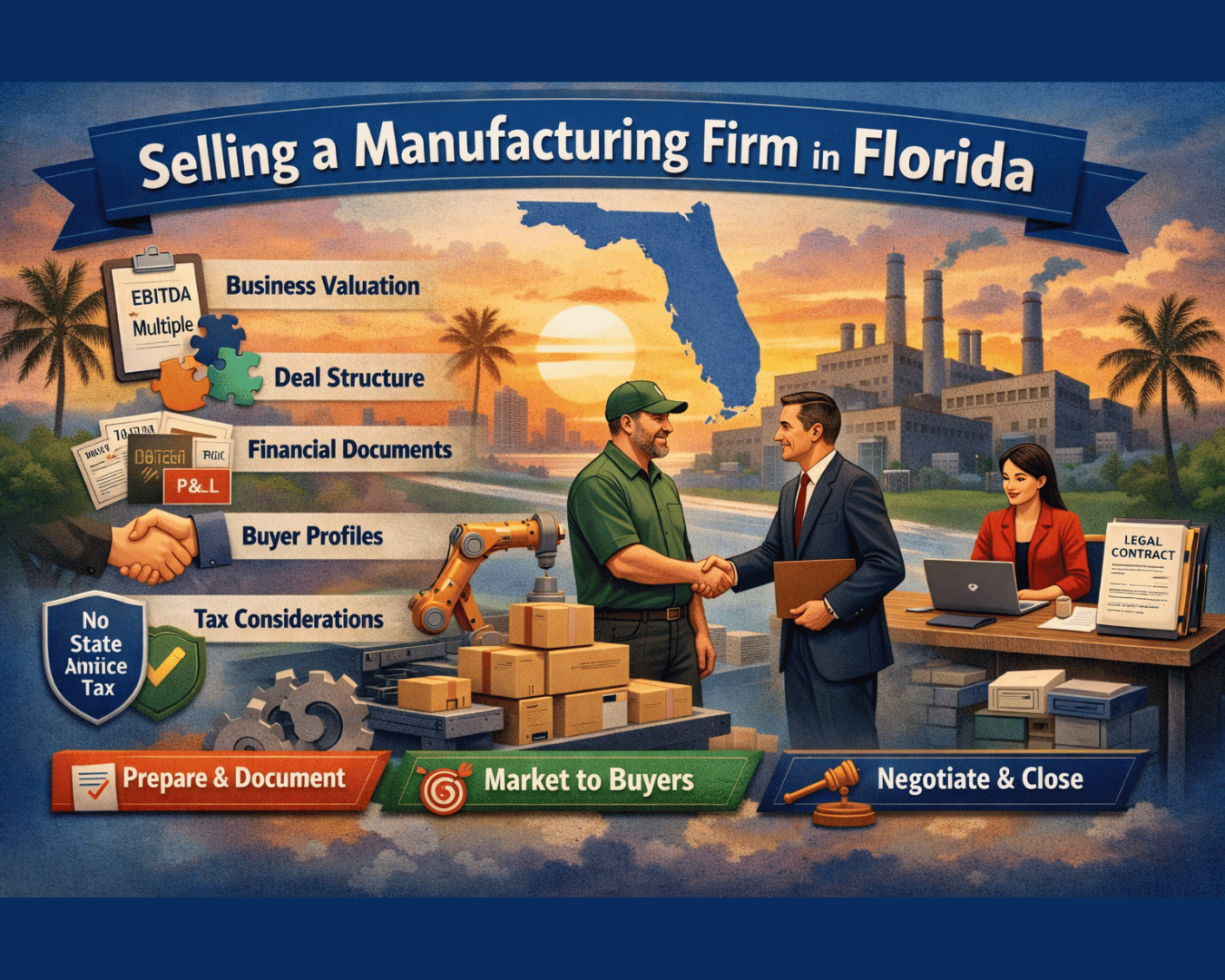
%20in%20a%20%2420M%20Sale..png)
%20vs.%20Conventional%20Loans%20for%20business%20acquisition.png)






















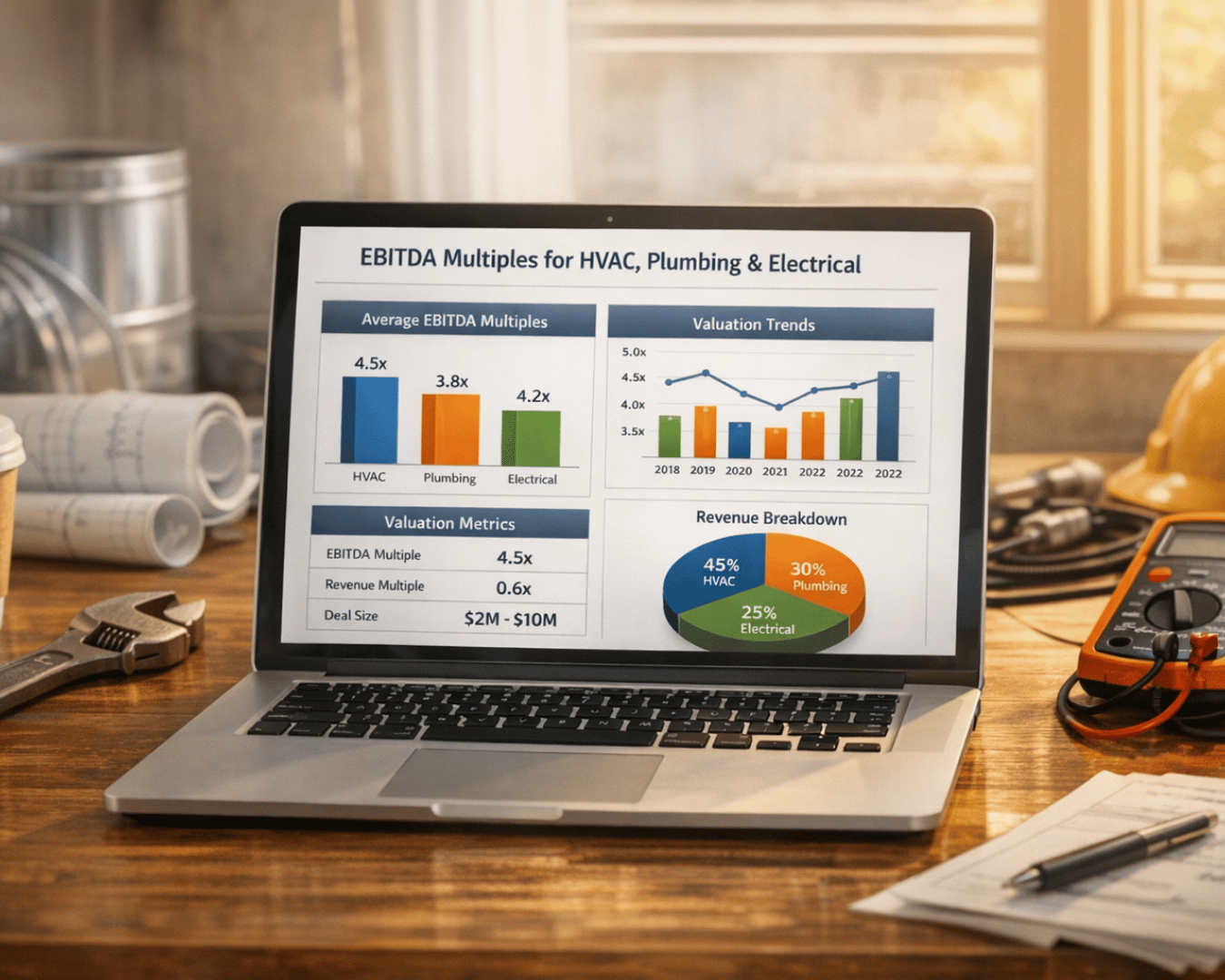
.png)


.png)
.png)

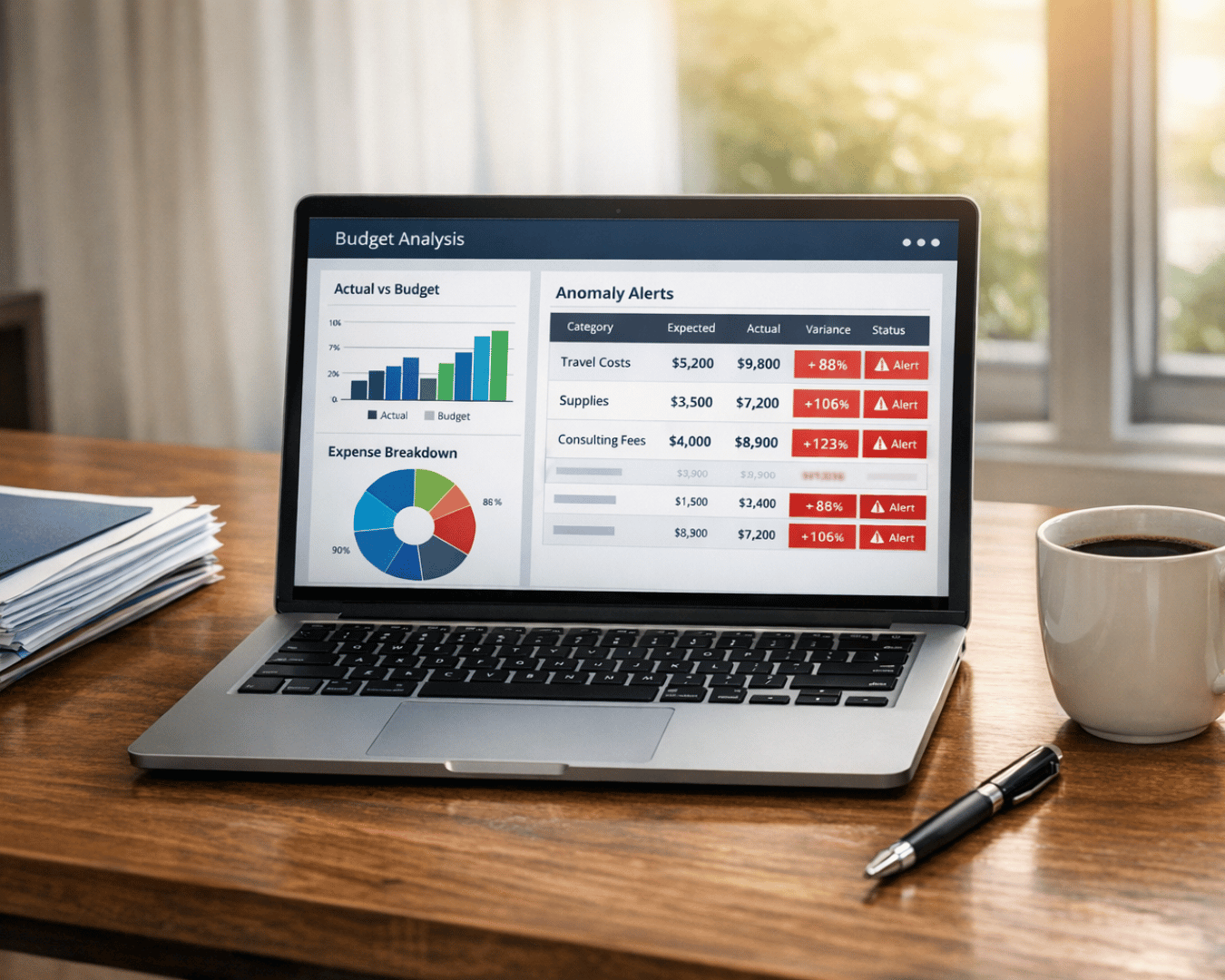
































.png)












